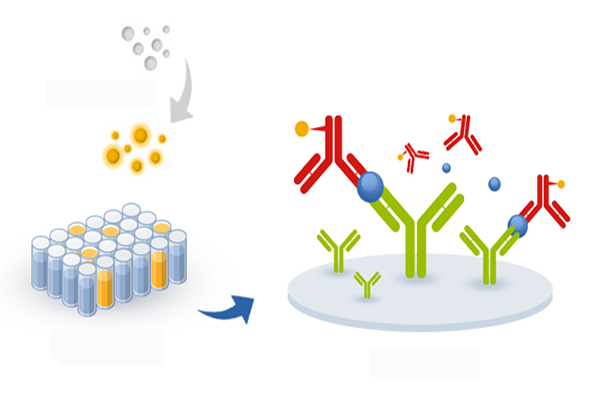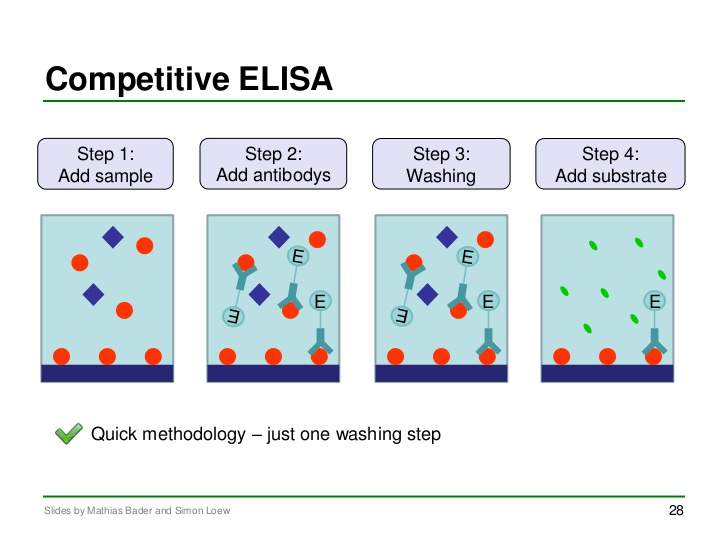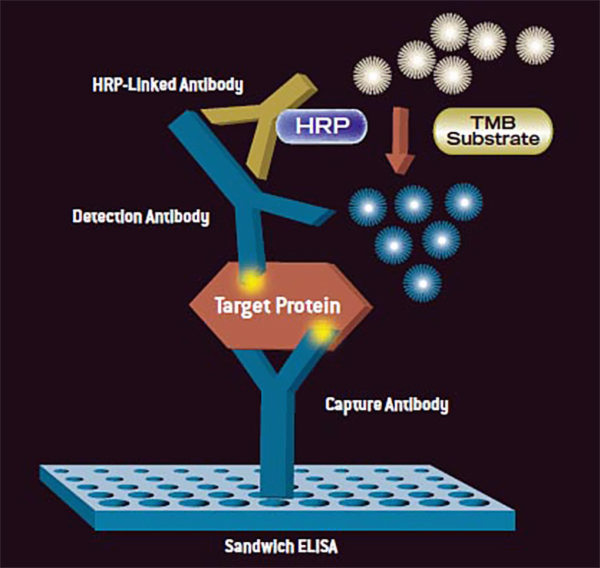Choosing the Right ELISA Kit for Your Lab: 5 Crucial Things to Keep in Mind
- Details
- Written by Rebecca Smith

As the number of infectious diseases in the world grows, there is a need to carry out tests and take preventive measures to stay healthy and protect your loved ones. As doctors and medical researchers, you would want to test the patient for specific antibodies to determine whether they have transmissible infections.
Infectious diseases are a critical matter in medicine, and some of them have no cure. There is, therefore, the need to ensure that all kits at your laboratory are in their perfect condition to provide accurate results. Below, we’ll explore five ways to help you determine the kit you will need.
1. Your Target
Before you buy the kit you need for the ELISA test at hand, you need to know the nature of the cytokine you want to monitor. The characteristics you should watch out for are both biological and chemical. Both of these attributes determine the outcome of your results.
You will, therefore, want to find a kit that has the appropriate buffers that tally with the molecule’s chemistry. Biological aspects also play a major role in what buffers you will need. For instance, the amount of cytokine present in the sample you are going to test can mean that the kit you’ll need may be common or rare. The reason for this is that if, for example, there is very little concentration of cytokine, you’ll need an ELISA kit with high capture sensitivity.

2. ELISA Quality Control
The ELISA market keeps expanding, and the kits you come across may overwhelm you with their variation in design and performance. However, the most important factor would be whether or not you will achieve your desired results. However, this may not come easy.
Quality control ensures that each kit meets the standard industry results after benchmarking by the manufacturer. Reproducibility and recovery are two of the main factors to check when determining the quality of the kit you are buying. You should go for a kit that provides as close to 100% recovery as possible.
3. Incubation
Every ELISA test takes some time before you can read the results. But the time you have to wait varies from one experiment to another. This time can also depend on the type of kit you chose for your lab tests. Incubation usually depends on the samples and temperature, among other factors.
Typically, you want to look at the time it takes for you to get your results, say at room temperature. You will discover that a change in temperature range can lead to a deviation in the timespan you have to wait for the test. Sometimes, setting the temperatures too high or low from the threshold may hinder your kits from functioning at all.
Therefore, while you are expecting to achieve the results in the minimum time possible, you should monitor the temperature at which you are conducting your tests.

4. Type of ELISA
ELISA kits come in various assay formats. Your kit choice depends on what you want to determine from the sample you collect. You can choose your kit from competitive, sandwich, direct, and indirect categories. Each of these assay formats has a unique method and application.
For instance, you would want to choose the direct ELISA for antigen presence detection tests. It becomes relevant because all you need is the identification and in the shortest time possible. There will be no need for recording details and consistent monitoring. Competitive ELISA will help in cases where the antigen concentration is too low for typical detection.
5. The specificity of the ELISA
Nobody wants to perform a test and get the wrong results. That would cause frustration, not to mention a waste of kit and time. Without an accurate choice, your kit may end up reading the wrong results with cross-reactions.
Specificity is necessary for accurate readings. It is the factor that will prevent the antibodies from attaching themselves to the wrong proteins or other components of the kit or medium while carrying out the test. Sometimes, the matrix components alter how antibodies react with antigens, giving you false results. That explains why you need to be keen when picking your ELISA to ensure that they have little to no cross-reactions.
Summary
While ELISA helps to determine the presence of antibodies in blood to confirm the infection or level of the body’s self-defense, inappropriate tests can lead to futile results. That explains why it is necessary to invest your time when choosing the kits for your laboratory. You, therefore, need an understanding of what you are studying before buying the kits for your assessments.
© 2020 crystalwind.ca. All rights reserved. Do Not Copy.
Liked this article? Dive deeper into personal growth and wellness! Check out CrystalWind.ca for spiritual wisdom or explore AromaWorx.ca for natural well-being tips. Spread the positivity—share this with friends on their happiness journey!
Let’s Chat! Drop Your Thoughts Below! ![]()
Disclaimer Health
All post and information provided within this blog is for educational and informational purposes only, and is not to be construed as medical advice or instruction. No action should be taken solely on the contents of this website. Please consult with your healthcare professional before making any dietary or lifestyle changes or taking supplements that may interfere with medications. Any products or information discussed are not intended to diagnose, prevent, treat or cure any illness, disease or lifestyle. Please consult your physician or a qualified health professional on any matters regarding your health and wellbeing or on any opinions expressed within this website.
Latest Articles
Dive into the Mystical World of the Crystal Wind Oracle Deck!
Get All the Enchanting Details Now!
NEW Expanded Boxed Edition!
Now with 58 Cards for Richer Wisdom!

Imagine a world of inspiration and healing, free for all—made possible by YOU!
Donate Now—Ignite the Magic at CrystalWind.ca!

Epilepsy - Finding A Cure
Your donation can make a difference!
Help us find a cure – donate now!
Unlock Your Light: Join Lightworkers Worldwide on CrystalWind.ca!
Follow Us!
Featured This Month
Abalone Shell
Echos Of The Ancestors Abalone strengthens the structure of the body and th... Read more
Lugh - Celtic God Of The Sun
The god Lugh was worshiped in Ireland as a deity of the sun. This connection... Read more
Cancer Mythology
The Mythology of Cancer: A Celestial Tale of Loyalty and Sacrifice Among th... Read more
Lammas by The Hedgewitch
Although in the heat of a Mid-western summer it might be difficult to discer... Read more
Egyptian Zodiac/Astrology
Egyptian astrology was one of the earliest forms of astrology. The Egyptians w... Read more
Chalcedony
The Stone Of Orators Chalcedony was very popular as a decorative stone in ant... Read more
Sun in Cancer
Cancer Sun Sign Characteristics Overview The name "Cancer" comes from Latin, ... Read more
































































































































































